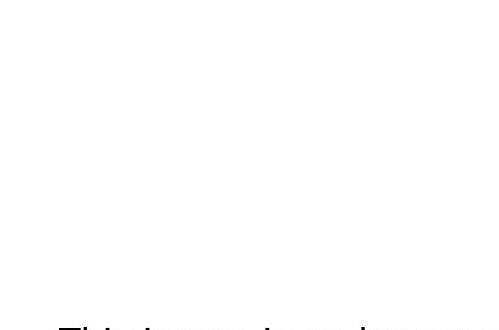
The first time I binge-watched The L Word, cooped up in my dorm during a sleepy summer working on my college campus, I was dumbstruck. The clunky plotlines, inconsistent character traits, and bouts of transphobic garbage didn’t register as loudly for me during my maiden viewing voyage as they would later on. At the time, I was mostly just in awe — bowled over by the sheer amount of gay women populating my computer screen.
The magic of The L Word, for me, wasn’t so much the (mostly disastrous) romantic relationships, or the (sometimes really weird) sexual encounters, or the (financially questionable) depictions of lesbians as savvy and successful. The magic was in the friendships — getting to see a bunch of lez ladies constantly hanging out together at the Planet, a fictional queer utopia of a café in West Hollywood.
It looked like a fucking dream.
At that point the closest thing I had to Planet-like camaraderie was playing on my very queer/questioning college rugby team, which was the saving grace of a Connecticut campus crawling with painfully heterosexual lax bros in boat shoes. That team was like family to me. My last year playing was somewhat soured when I dated — then had a long, fiery, terrible breakup with — one of my captains (#lesbianproblems). But the fallout wasn’t enough to shake the deep, achy affection I still carry around for that time of my life, when I was trying to figure myself out in tangles of mud and limbs on a rugby pitch, physically fighting for a bunch of girls I loved.
Ever since I’ve succeeded in figuring myself out (verdict: full-blown homosexual), I’ve wanted the grown-up version of a gay girl gang. My queer and maybe-queer rugby friends had helped me navigate all the weird new shit I was feeling — what my friend John calls queer people’s second adolescence — and after leaving college behind, I actively intended to surround myself with other gay women as fully confident in their gayness as they’d be in their goals, their passions, and their convictions about closeted celebrities (as shared over fervent group text).
So far, after over a year in New York City, that hasn’t happened. And I'm starting to wonder if it ever will.


My first summer in New York, I decided to go all out for Pride: I splurged on an obscenely expensive ticket to a girl-centric party, then late-night barhopped. I went out with two of my friends, a lesbian couple; I was newly single, so as much as I loved (and still love) hanging out with them, they weren’t necessarily the best company at the time. I was a heartbroken third-wheeling gay in the middle of a gay-a-palooza. While my friends danced with each other at Henrietta Hudson — one of New York’s few lesbian bars, which has a $10 cover that rarely seems worth it — I made a fool of myself hitting on a college professor twice my age. A couple disappointingly sloppy makeouts later, I was sitting on a bench outside the bar by myself. My friends had gone home. I bummed a cigarette from a passing butch. It was one of the loneliest moments of my life.
I wanted to feel like I was actually a part of New York’s queer culture, rather than a brooding interloper on the sidewalk.
It wasn’t so much a being-single kind of lonely, though that definitely factored in somewhere. The gaggles of friend groups tumbling drunkenly by me were the ones I truly envied. What I wanted right then was someone who understood precisely what I was going through. I wanted someone who would commiserate with me over the masculine queer who, just a few minutes before, had accused me of being straight when I didn’t show interest in them (wasn’t the first time, probably won’t be the last). I wanted someone who would share my horror at the high possibility of an ex walking by. I wanted someone who would sympathize with my sadness in some clearly lost straight cis man trying to chat me up on my way to the subway when I would kill, then as ever, to simply be read as visibly queer. I wanted someone who got my particular post-breakup heartache, which was tangled up in complications of gender and power and personal politics gone awry.
I wanted to feel like I was actually a part of New York’s queer culture, rather than a brooding interloper on the sidewalk. I wanted someone — a best friend, or better yet, a whole group of them — who intimately understood that I’d spent nearly 20 years moving through the world as one person, and ever since my great gay awakening I’ve been trying to figure out how to live as somebody else.

If you can build a lesbian posse anywhere, it’s New York, right? But much the same way recent transplants quickly realize their social lives won’t look anything like the ones in Friends or Sex in the City — how do these people live next door to all their friends? Why are they all white and straight and well off when they live in one of the most diverse cities in the world? How do they have seemingly endless time to hang out in coffee shops??? — it’s dawned on me that a queer lady crew isn’t as easy to come by as L Word creator Ilene Chaiken (mis)led me to believe.
Obviously, TV is TV. I didn’t really believe The L Word was projecting anybody’s potential reality. But the spirit of queer friendship, though, was believable to me. Aspirational. I wanted — still want — a Shane to my Alice.
It’s not like I don’t have any other friends who are lesbians — I do. They aren’t my exes or even my exes’ exes! They’re wonderful and I love them. But I have maybe, like, six total. And most of them don’t know one another. They’re college friends, friends I’ve met through jobs or fellowships. I don’t throw enough parties to force them to interact and join forces. We aren’t weekly fixtures in each other’s lives — they have the audacity to live in Manhattan and Queens; I live with my girlfriend in Brooklyn and skew introverted.

Of course, this speaks to my difficulty in cultivating any sort of tight-knit friend group in the cold, hard world of hourlong-subway-rides adulthood. Grown-up friendship is hard. And because it’s hard, the friendships I go to bat for even when I’m cranky and tired and Netflix is calling my name are my few closest, most intimate friendships — which, for basically all of my life, have been with straight girls. They’re the ones who I’ll go to when I’m having any sort of meltdown; the ones whose company and intellect and humor I jive with more than anybody else’s; the ones who knew me when I dated men and still like me now that I’ve become a loud, abrasive queer. I wouldn’t trade them for the world. But there have been hiccups.
A couple of them aren’t too hot on the idea of going to lesbian bars with me, even though I have to deal with dumb men hitting on me and spilling beer on my shoes whenever we go out to “normal” places. Eventually, when everyone starts getting married and having babies, my straight friends (barring fertility issues — knock on wood) won’t personally understand my sure-to-be struggles to conceive and/or adopt while queer. As for our talks about sex now, some stuff inevitably gets lost in translation. When I’m having any particularly gay problem, my straight friends’ comfort, while so precious and so appreciated, can only go so far in what, to them, is a pretty unknown arena.
As Kristin Russo of Everyone Is Gay told me when I began informally surveying queer women about their own queer friend groups, or lack thereof: Cis straight friends can be incredible people and allies — but “you can’t explain [queerness]. It really just has to be lived.”
Every time I’ve felt lonely outside Henrietta Hudson, or fetishized by some male-gazey piece of pop culture, or told in some way or another that my queerness is impermanent, or irrelevant, or less than, I’ve wanted to surround myself by people who live as I live.

Not too long ago, in a world especially hostile to queer humanity, gayborhoods and bars and community centers were some of the only spaces where queers could feel fully comfortable in how they presented and who they fucked. Having a gay girl group was more than community for the sake of friendship and connection: It was community for the sake of survival.
Even today, lesbian bars are some of the last-standing spaces where queer women can go and be queer without the world dumping bullshit all over us. They’re not just places to drink and dance — they’re community centers. But lesbian bars are closing down across the country. San Francisco doesn’t have a single one left.
Recently, while at a gay bar in Chelsea, a guy I’d just met asked me why lesbian bars don’t exist on any comparable scale to “their” bars. “Is the demand just lower?” he wondered. I don’t think he meant any harm, but the question made me mad anyway. There’s a long-held theory that lesbian bars are doomed because we U-haul our way into relationships faster than gay men do; apparently, once we’ve quickly coupled, we’d rather stay home petting our cats and talking about our feelings than go out drinking anymore. There’s probably some truth there — but plenty of people age out of partying, not just lesbians. So I call bullshit. Many queer women still want spaces to be together. They’re just being priced out of them.
Many queer women still want spaces to be together. They’re just being priced out of them.
My co-worker Jenna told me that when she moved to Williamsburg eight years ago, that’s where all the queer girls were. She likened it to the Mission in San Francisco: everyone went to the same parties, hung out in the same places. “I loved being able to walk to my friends’ houses,” she said. Now, she posits, lesbians in their twenties aren’t able to foster the same queer lady enclaves due to gentrification: New York’s skyrocketing rents mean lesbians are more spread out than ever before. The $1,200 Williamsburg two-bedroom Jenna used to live in has likely tripled in rent since she left it. While white, affluent gay men can afford to live in the West Village or Chelsea, weekend on Fire Island, and keep gay businesses afloat with their patronage, many queer women — particularly those at the intersections of multiple marginalized identities — don’t have the same economic and geographical footholds. Lesbian spaces are disappearing; we grow farther and farther away from one another. I mentioned it earlier: The few lesbian friends I do have live boroughs (lifetimes) away from me.
Nowadays it still isn’t easy to be publicly queer, but in cities like New York, openly lived queerness is getting increasingly more survivable. Queers don’t need to live in close-knit communities purely for safety reasons anymore. When it comes to the right to exist on a street corner, trans women of color — for whom merely surviving is a pressing, primary concern — deserve the bulk of our advocacy. Queer women of color, too, are still subjected to appalling harassment in a post–marriage equality America. As a white cis queer, living in this city, at this cultural moment, I’m very lucky. I don’t necessarily need queer spaces, and queer friend groups, for physical protection.
I think I want those queer spaces, and a queer friend group, to ensure a different kind of survival. In the wake of marriage equality, I’m hoping we can take what rights we’ve finally been afforded (while actively participating in the fights still ahead) without insisting that, finally, we are post-gay, that being queer doesn’t matter, that queerness is no more significant than being tall or brunette or left-handed. Being left-handed doesn’t impact the way I think or feel or live. While queerness isn’t responsible for the totality of my worldview, it certainly isn’t an insignificant element. Sometimes, in certain situations, I seek out that element in other people. As Kristin Russo told me: “There’s a fundamental understanding when you’re friends with people who are experiencing the same things as you are in the world.”
Not every queer person will have the exact same experiences as every other queer person, which is OK — it’s awesome, actually. All the more reason, then, to avoid collapsing our community into a dull monolith — to insist that we are exactly like everybody else. If we really were just like everybody else, I wouldn’t give a shit about having any queer friends, let alone a whole group of them.

Maybe I don’t have a proper queer girl gang because we’re running out of spaces, or because of gentrification, or because now that plenty of straight people won’t outright reject us, we aren’t all each other has anymore. I also haven’t lived in any one place much longer than a year since college, which surely matters a great deal — if I stick it out in New York, I’d hope my queer circles could only grow. And if I ever get to a place where I could stand being friends with my exes, the girl gang potential would grow all the more.
If I were to rewatch The L Word now, I think I would realize more of the ways that those characters experience the world differently than I do — the first time I saw it, all I could see was how we were exactly the same. My gay-starved heart took in all those lesbians and called out, Me. Me. There I am. Me.
Now, I’d see that I can’t afford a pool in the back of my house.
There was a time when a lesbian-separatist universe would seem like heaven to me, but I grew out of that fantasy.
In The L Word, basically nobody isn’t a gay lady. One or two oafish straight men wander in and quickly back out. Did a truly heterosexual woman ever show up at all? There was a time when such a lesbian-separatist universe would seem like heaven to me, but I grew out of that fantasy — not least because that universe didn’t have room for anyone who’s bisexual or trans or gender nonconforming, which is not a queer universe I’d like any part of. And being surrounded by all queer girls all the time wouldn’t be satisfying either — I still want people in my life who live differently than I do, in any number of ways. I’d rather shoot for a queer solar system than a universe.
I’m still not sure exactly what that solar system could, or should, look like. When I was complaining to my girlfriend about wanting more lesbian friends — a conversation that eventually turned into this essay — she asked me, “Aren’t you and me a gay girl gang?” I think she was half-kidding, and I waved her off at the time. But maybe she was right, in a way. The two of us are our own tiny little posse, gay girls against the world. And when we double-date with our couple friends, we make up a slightly bigger queer girl gang. And my gay guy friends, whom I love dearly, are a different, valued part of my fractured queerdom.
Maybe what I need to do is let go of the idea of a queer posse as I’d originally conceived it. Quality over quantity, and all that. Five years ago, the only queer women I’d ever known was my (half-closeted) 12th-grade English teacher. I couldn’t even count myself as one then. We’ve come a long way, kid.
So I’m trying not to worry about it quite so much. Friendship, that weird, messy, fragile thing, is best left to organic devices, though I haven’t necessarily weighed out more active options — anyone interested in starting a lesbian book circle/rugby team/Kristen Stewart fan club? Just let me know. I suppose we have to start somewhere.
